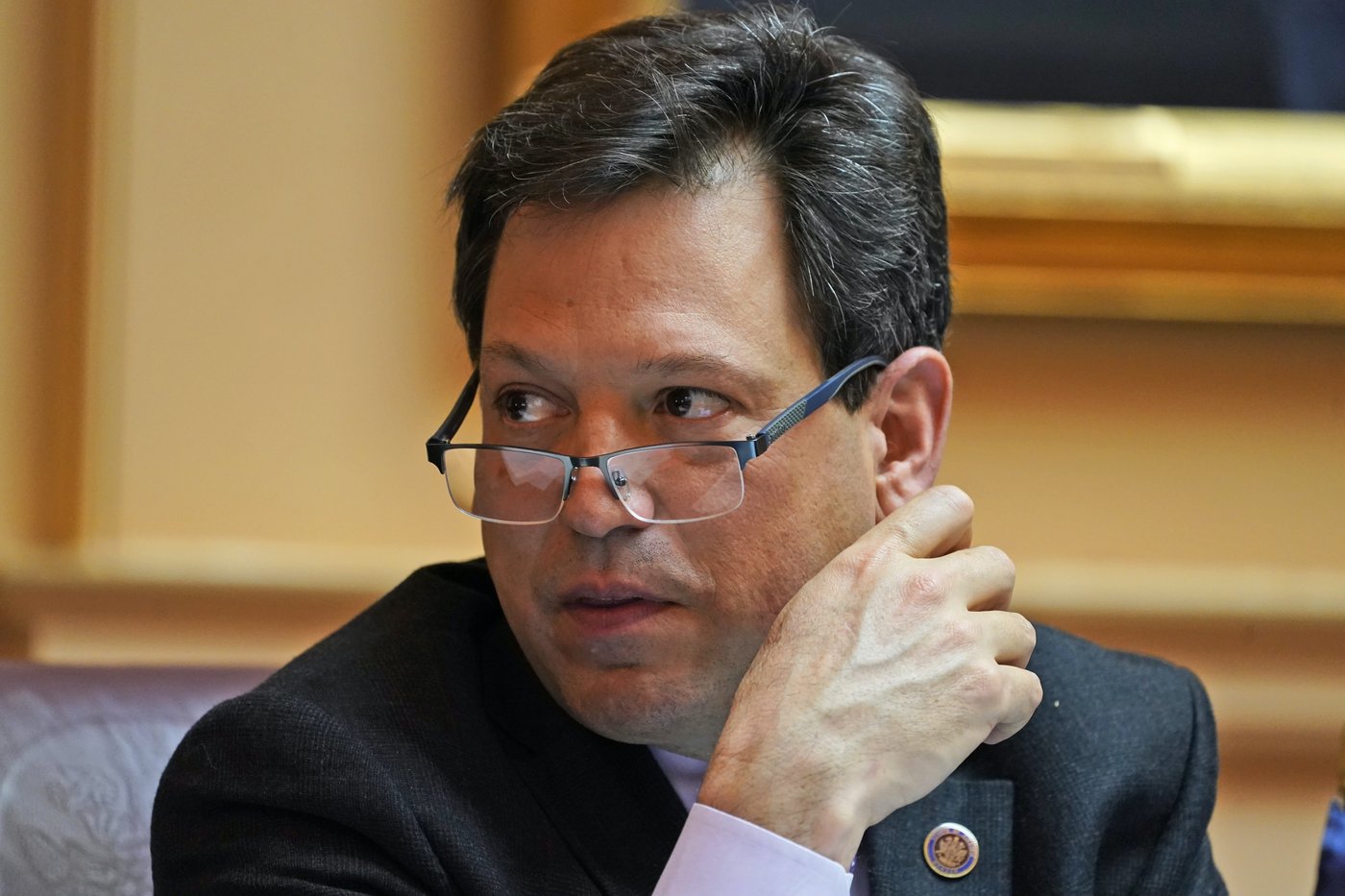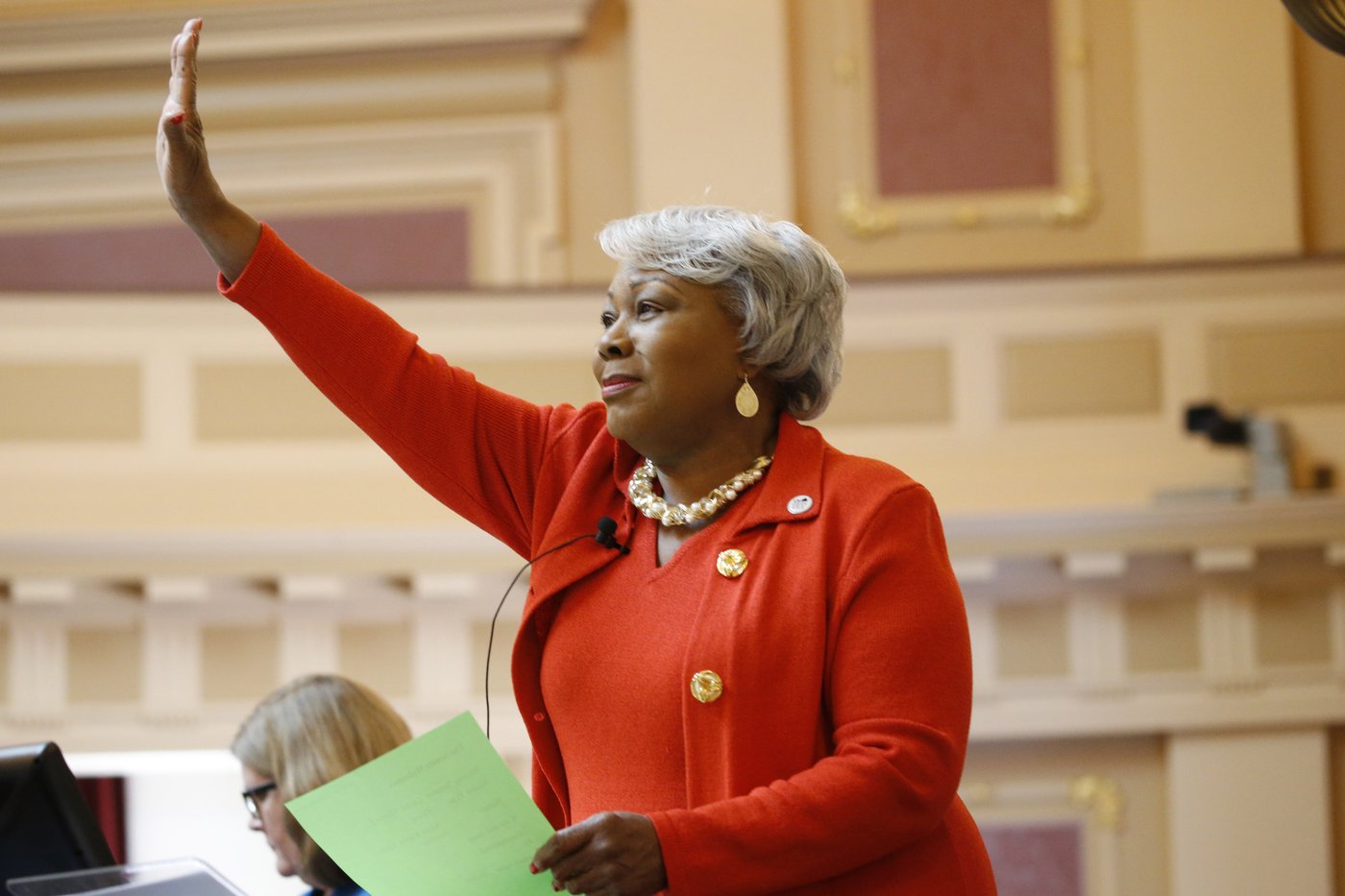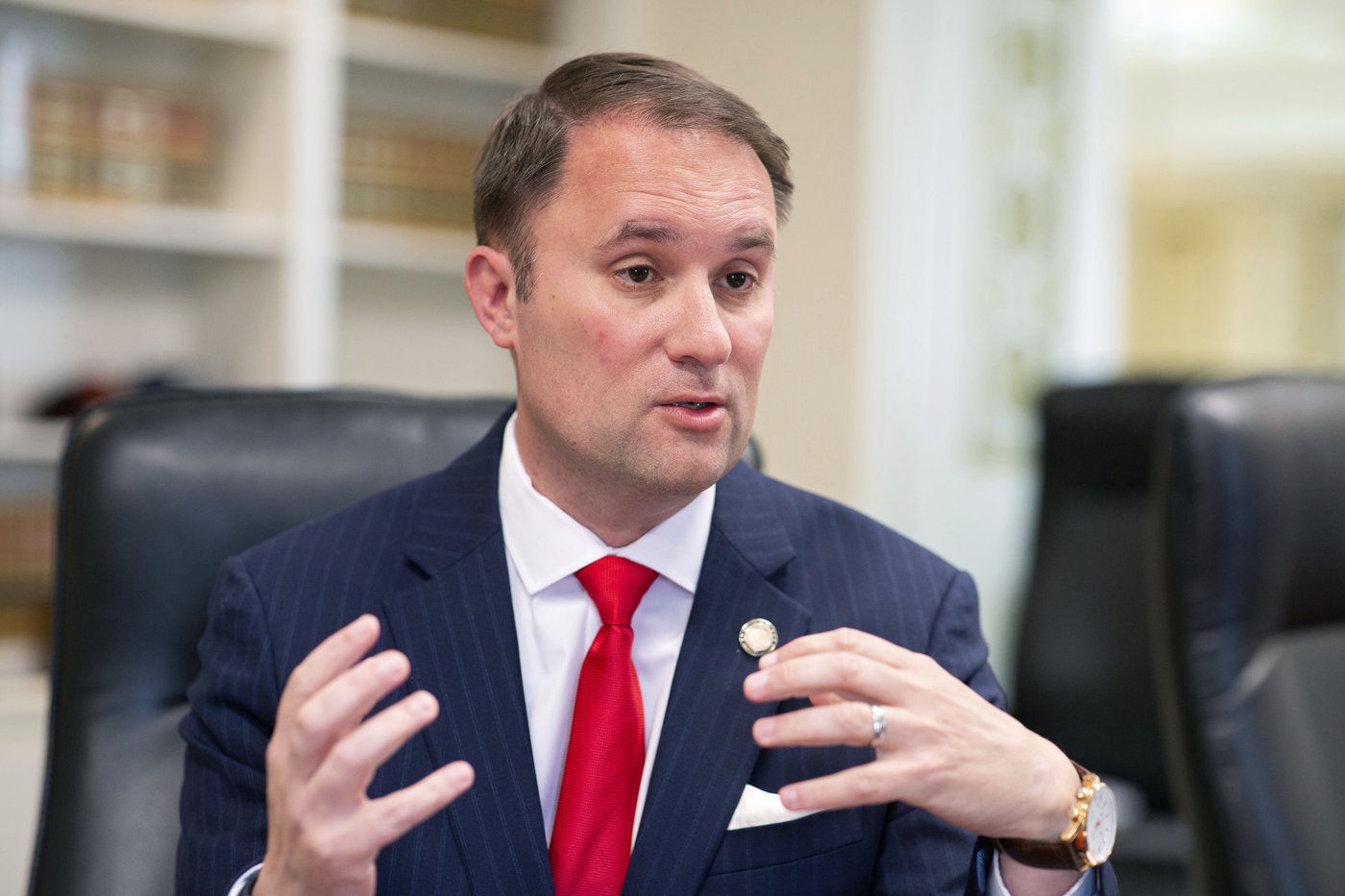Elevate your local knowledge
Sign up for the iNFOnews newsletter today!
Sign up for the iNFOnews newsletter today!
Selecting your primary region ensures you get the stories that matter to you first.

FAIRFAX, Va. (AP) — A judge ordered that eight public university board members tapped by Republican Gov. Glenn Youngkin be removed from their posts in a victory for Virginia Senate Democrats who rejected the appointees in a June committee vote.
Fairfax Circuit Court Judge Jonathan D. Frieden severed the newly appointed members from their governing-board seats at the University of Virginia, George Mason University and the Virginia Military Institute. His order came at the request of nine Virginia Senate Democrats who filed a lawsuit last month requesting immediate action against the heads of university boards, also known as rectors or presidents.
The nine senators argued that despite the legislative committee rejecting the membership of the eight board members, the board chairs had continued acknowledging them as members, and Frieden agreed.
“Here, the public interest is served by protecting the power of the elected legislature to confirm or reject gubernatorial appointees,” Frieden wrote in an opinion letter about his order.
On Tuesday, a spokesperson for Virginia’s attorney general said in a statement that their office would be appealing the order.
“This case is straightforward,” spokesperson Shaun Kenney said, adding: “We will quickly file an appeal with the Supreme Court of Virginia and are confident in our position.”
The case comes amid the White House’s effort to reshape higher education, with a focus on DEI. Colleges in Virginia and across the U.S. have recently become a groundswell for political tension between academic leaders and the federal government, with boards at the center of those battles.
The political and cultural divide in higher education has only escalated conflicts over who gets to have a seat at the table for critical board votes that could shape those institutions’ future.
In June, University of Virginia President Jim Ryan resigned after the Justice Department pushed for his removal. Earlier this month, the Trump administration initiated a civil rights investigation into George Mason University’s hiring practices. The board at George Mason is having a meeting later this week.
And earlier this year, the board at the Virginia Military Institute ousted its president, Retired Army Maj. Gen. Cedric T. Wins. His tenure as president was marked by the implementation of diversity initiatives, which faced pushback from some conservative alumni.
Last month, the Virginia Senate Privileges and Elections committee met through an ongoing special session and opted against approving the eight university appointees made by Youngkin, notably including former Virginia attorney general Ken Cuccinelli II and Caren Merrick, Youngkin’s former commerce secretary. According to the state Constitution, all gubernatorial appointments are subject to confirmation by the General Assembly.
Following the vote, Democratic Senate Majority Leader Scott Surrovell wrote a letter to all board chairs, reminding them that appointees must be approved by the legislature.
But Republican Attorney General Jason Miyares also wrote to the heads of the university boards, instead advising them that the appointed members should remain on the governing bodies because only a committee, not the whole state General Assembly, had voted to reject them.
Mark Stancil, an attorney representing the Democratic senators, argued that the attorney general’s guidance was incorrect.
“Their position flies in the face of the text of the Constitution, the text of the governing statute, and decades of longstanding practice,” he wrote in a court filing.
Christopher Michel, representing the rectors, countered that if the Constitution states that the legislature has the power to reject appointees, that would mean the full legislature rather than one committee.
“The General Assembly is a two-house body,” Michel said.
Michel further questioned whether the Virginia senators met the legal requirements necessary to have board members immediately removed by a judge. He asserted that Virginia senators had sued the wrong people, and that the rectors did not represent the voted-down members themselves. In turn, Stancil argued to the court that rectors are responsible for holding meetings and counting votes.
Frieden said in his letter that the rectors did have culpability in the case, writing: “As the person presiding at those meetings, each … is responsible for recognizing members who wish to speak and recognizing and announcing the votes of members.”
Inside the courtroom, Surovell, state Sen. Kannan Srinivasan and Deputy Attorney General Theo Stamos sat among the benches. Surovell said to a group of reporters outside the courtroom that state Democrats had a responsibility to push back.
“These boards just don’t seem very interested in following any law or listening to anything that the entity that controls them says,” he said. “This hearing today is about making sure that we have a rule of law in Virginia — that the laws are followed and that the Senate is listened to.”
___
Olivia Diaz is a corps member for The Associated Press/Report for America Statehouse News Initiative. Report for America is a nonprofit national service program that places journalists in local newsrooms to report on undercovered issues.


This site is protected by reCAPTCHA and the Google Privacy Policy and Terms of Service apply.
Want to share your thoughts, add context, or connect with others in your community?
You must be logged in to post a comment.